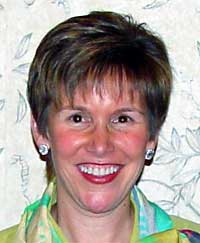national
Gay advocates pleased but unsatisfied with civil unions, say they plan to push for marriage
Conn. civil-unions law, which includes definition of marriage between a man and a woman, takes effect Oct. 1
Published Thursday, 28-Apr-2005 in issue 905
HARTFORD, Conn. (AP) – Gay-rights proponents had been hoping that Connecticut would follow the lead of neighboring Massachusetts by allowing same-sex couples to marry.
That’s why they were pleased but still unsatisfied when Connecticut offered civil unions to same-sex couples, becoming the first state to do so voluntarily, without being forced by the courts.
“As important as the rights are, this is not yet equality,” said Anne Stanback, executive director of Love Makes a Family, a statewide gay rights organization.
Vermont is the other state to allow civil unions, which carry the rights and privileges of marriage without the marriage license. Massachusetts allows same-sex couples to marry. But those changes came about after same-sex couples won court battles.
Gov. M. Jodi Rell, a Republican, signed the bill about an hour after it was approved 26-8 by the Democrat-controlled Senate. The law, which takes effect Oct. 1, includes an amendment that defines marriage as being between a man and a woman. Civil unions are reserved only for same-sex couples.
“I have said all along that I believe in no discrimination of any kind and I think that this bill accomplishes that, while at the same time preserving the traditional language that a marriage is between a man and a woman,” Rell said.
According to the 2000 census, there are 7,400 same-sex couples in Connecticut.
Jeffrey Busch, who lives in Wilton, said he would likely take advantage of the law and engage in a civil union with his partner, Stephen Davis.
“But we’re not going to celebrate a civil union like a marriage,” said Busch, an administrative-law judge in New York. “If it had everything a marriage has, it would be called a marriage.”
Busch and Davis are one of seven same-sex couples who sued in Connecticut last summer after being denied marriage licenses; the case has not been resolved.
Some same-sex marriage proponents say the new law means they will have to wait awhile before asking the state Legislature to revisit the issue and consider same-sex marriage.
“I think we are all going to have to step back and take a deep breath and realize that we need to understand the world is not going to change as the result of this legislation,” said Democratic Sen. Andrew McDonald, co-chair of the Judiciary Committee and one of a handful of openly gay legislators.
“We’ll have an opportunity to see how it unfolds as unions start in October of this year,” said McDonald, who supports Connecticut opening its marriage laws to same-sex couples.
Opponents had hoped to persuade Rell to veto the bill, saying civil unions are essentially the same as same-sex marriage.
Roman Catholics and pro-marriage activists rallied last Sunday in opposition to the bill.
Marie Hilliard, executive director of the Connecticut Catholic Conference, said the civil union proposal “got more legs than we ever hoped it would get.” About 44 percent of the state’s 3 million residents are Roman Catholic.
Brian Brown, head of the Family Institute of Connecticut, said his group intends to keep the issue squarely before the public.
“From now until 2006, our mission will be to let every person know in the state of Connecticut which lawmakers voted to redefine marriage, and which lawmakers voted to protect marriage,” he said.
|
|
Copyright © 2003-2025 Uptown Publications


